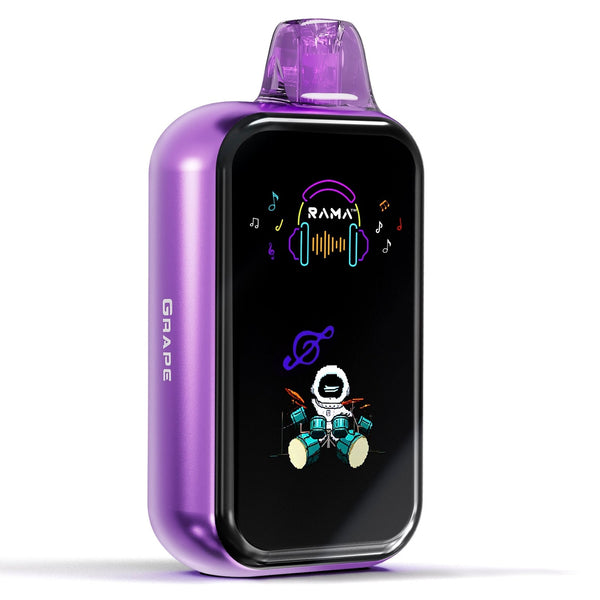Вейпинг стал популярной альтернативой курению, особенно среди молодежи. Хотя его влияние на здоровье легких широко обсуждается, часто возникает другая проблема: делает вейпинг вызывает акне? Этот блог глубоко исследует связь между вейпингом и проблемами кожи, включая акне, кистозное акне и сопутствующие состояния. Хорошо также исследуйте такие термины как курильщики акне, обсудите, если никотин может вызывать акне, и решить, что такое внешний вид вейп-сыпи.
продукт-вставка1
Понимание акне и его причин
Акне — это кожное заболевание, которое возникает из-за забитых волосяных фолликулов. Мертвые клетки кожи, себум (масло) и бактерии соединяются, образуя прыщи, черные точки или кисты. Некоторые основные триггеры акне включают:
Гормональные изменения
Гормоны играют ключевую роль в развитии акне. Изменения уровня гормонов могут стимулировать сальные железы в коже, что приводит к увеличению производства масла (себума). Это избыточное масло смешивается с мертвыми клетками кожи и забивает поры, создавая среду, в которой могут процветать бактерии, вызывающие акне.

Общие сценарии, приводящие к гормональным угрям:
- Половое созревание: В период подросткового возраста повышенные уровни андрогенов, таких как тестостерон, могут вызывать чрезмерное производство себума.
- Менструальные циклы: У женщин часто возникают высыпания акне перед менструацией из-за колебаний уровней эстрогена и прогестерона.
- Стресс: Высокий уровень стресса повышает уровень кортизола, что может косвенно влиять на выработку масла и воспаление кожи.
- Никотин и гормональное воздействие: Никотин, содержащийся во многих вейп-продуктах, может нарушать регуляцию гормонов, что потенциально способствует появлению высыпаний.
Чтобы смягчить акне, вызванные гормональными изменениями, поддержание здоровой диеты, снижение стресса и использование средств по уходу за кожей с салициловой кислотой или пероксидом бензоила могут помочь регулировать выработку масла и предотвратить высыпания.
Избыточное производство нефти
Себум, натуральное масло вырабатываемый кожей, играет ключевую роль в поддержании его увлажненности и защиты. Однако, когда сальные железы производят слишком много масла, это может привести к закупорке пор и акне.
Факторы, вызывающие избыточное производство масла:
- Генетика: Некоторые люди предрасположены к гиперактивности сальных желез.
- Обезвоживание: Иронично, что когда кожа обезвожена, она компенсирует это, производя больше масла. Вейпинг может усугубить эту проблему, снижая увлажненность кожи.
- Климат: Жаркие и влажные условия могут стимулировать выработку масла, что приводит к более частым высыпаниям.
- Диета: Потребление продуктов с высоким гликемическим индексом или молочных продуктов может повысить уровень инсулина, способствуя выработке масла.
Борьба с избыточным производством нефти включает в себя поддержание увлажненности кожи с водными увлажняющими средствами, избегая чрезмерного мытья и используя матирующие продукты для контроля блеска.
Плохие привычки ухода за кожей
Плохие практики ухода за кожей могут значительно ухудшить или даже вызвать акне. Многие люди непреднамеренно вредят своей коже, пренебрегая правильный гигиена или использование неподходящих продуктов.
продукт-вставка2
Примеры плохих привычек по уходу за кожей:
- Нерегулярное очищение: Нерегулярное умывание лица позволяет грязи, маслу и бактериям накапливаться на коже, забивая поры.
- Чрезмерное очищение: Частое мытье или использование агрессивных очищающих средств могут лишить кожу его натуральные масла, вызывая раздражение и провоцируя избыточное производство масла.
- Использование комедогенных продуктов: Некоторые средства по уходу за кожей и макияжем содержат ингредиенты, которые забивают поры, что приводит к акне.
- Не удаление остатков вейпа: Для вейперов остатки от электронных жидкостей может остановиться на тот кожи, способствуя закупорке пор и высыпаниям.
Чтобы поддерживать здоровую кожу, установите постоянный режим ухода за кожей, который включает очищение, отшелушивание и увлажнение. Ищите неккомедогенные продукты и всегда удаляйте макияж перед сном.
Внешние раздражители
Внешние факторы, включая загрязнители окружающей среды, аллергены и физические раздражители, могут усугублять состояние кожи и приводить к акне. Эти раздражители могут вызывать воспаление, забивать поры или ухудшать состояние кожи. более восприимчивый к бактериям.
Общие внешние раздражители:
- Загрязнение: Грязь и микроскопические частицы из загрязненного воздуха могут оседать на коже, забивая поры и увеличивая риск появления высыпаний.
- Контакт с руками или предметами: Частое прикосновение к лицу переносит бактерии и масла с рук на кожу. Такие предметы, как экраны телефонов, шляпы или маски, также могут задерживать пот и бактерии на коже.
- Остатки от вейпинга: Аэрозоль от вейпов содержит химические вещества, которые могут оставаться на коже, действуя как раздражитель и потенциально способствуя таким состояниям, как сыпь от вейпа.
- Жесткие средства по уходу за кожей: Продукты с сильными ароматами, алкоголем или другими раздражителями могут удалить кожи естественный барьер, что делает его более подверженным высыпаниям.
Минимизация воздействия внешних раздражителей включает в себя защиту кожи от загрязнений с помощью антиоксидантов, регулярную очистку предметов, которые касаются вашего лица, и избегание жестких или аллергенных средств по уходу за кожей.

Никотин и вейпинг вводят новые переменные в уравнение. Может ли эта привычка усугубить или даже вызвать акне? Давайте расследовать.
Вызывает ли вейпинг акне? Разоблачение мифов

Связь между вейпингом и акне сложна. Хотя вейпинг не является прямой причиной акне, он может усугубить состояние у определенных людей. Вот почему:
- Обезвоживание: Часто парю приводит к снижению увлажнение кожи, которое может увеличить выработку масла.
- Воспаление: Химические вещества в электронных жидкостях могут вызывать воспалительные реакции на коже.
- Никотин Роль: Никотин, ключевой компонент многих вейпов, может сужать кровеносные сосуды, уменьшая приток питательных веществ к коже.
Вызывает ли вейпинг кистозные угри?
Кистозная акне - это тяжелая форма акне, характеризующееся глубокими, болезненными поражениями. Хотя исследования, непосредственно связывающие вейпинг с кистозным акне, ограничены, несколько факторов указывают на связь:
- Гормональные колебания: Никотин может нарушать гормональный баланс, что потенциально может привести к кистозным высыпаниям.
- Увеличение продукции себума: Обезвоженная кожа, вызванная вейпингом, может компенсировать это, производя избыточное количество масла.
- Чувствительность кожи: Пропиленгликоль и другие ингредиенты электронных жидкостей могут раздражать чувствительную кожу, создавая идеальные условия для кистозных угрей.
продукт-вставка4
Что такое акне курильщиков и как оно связано с вейпингом?
Курильщики акне относится к угревым высыпаниям, вызванным химическими веществами и токсинами в дыме сигарет. Хотя вейпинг часто считается "очиститель," это все еще связано с воздействием на подобные раздражители. Для вейперов остатки от жидкостей для вейпов могут оседать на коже, забивая поры и имитируя курильщиков прыщи.
Профилактические советы для вейперов:
- Очищайте лицо после вейпинга, чтобы удалить остатки.
- Используйте неккомедогенные средства по уходу за кожей, чтобы предотвратить закупорку пор.
Может ли никотин вызывать акне? Научные основы этого
Никотин играет центральную роль в обсуждении вейпинга и акне. Исследования показывают, что:
Никотин сужает кровеносные сосуды: сниженное кровообращение влияет на здоровье кожи
Никотин является мощным вазоконстриктором., имея в виду это сужает кровеносные сосуды и ограничивает кровоток по всему телу, включая кожу. Сниженное кровообращение означает, что меньше питательных веществ и кислорода достигает клеток кожи. Этот ухудшает Оболочки способность к самовосстановлению и борьбе с воспалением, вызванным акне или внешними раздражителями.
продукт-вставка5
Как сниженное кровообращение влияет на кожу:
- Задержка заживления: Порезы, blemishes и акне заживают дольше, увеличивая шансы на образование рубцов или инфекцию.
- Тусклый вид: Плохое кровообращение может сделать кожу бледной, уставшей или безжизненной. так как ему не хватает достаточные питательные вещества.
- Ослабленная защита: С меньшим поступлением кислорода и питательных веществ кожа становится менее способной бороться с бактериями и поддерживать свой естественный блеск.
Для вейперов это эффект может быть особенно проблематичным если они уже склонны к высыпаниям или раздражению. Противодействие этому требует правильного ухода за кожей и включения антиоксидантов, таких как витамин C, которые поддерживают регенерацию и здоровье кожи.
Повышение уровня гормонов стресса: никотин стимулирует выработку кортизола, усугубляя акне
никотин нет не только влияет на кровоток — он также влияет на уровень гормонов, особенно кортизола, тела первичный гормон стресса. Когда никотин попадает в кровоток, он вызывает выброс кортизола. Повышенные уровни кортизола могут нанести вред коже, увеличивая выработку масла и воспаление.
Эффекты высоких уровней кортизола на акне:
- Избыточное производство себума: Гормоны стресса стимулируют сальные железы, заставляя их производить больше масла. Это масло смешивается с мертвыми клетками кожи, забивает поры и приводит к акне.
- Воспаление: Кортизол может усиливать воспалительные реакции в коже, ухудшая покраснение, отечность и чувствительность вокруг blemishes.
- Модели прорыва: Акне, вызванное кортизолом, часто появляется на лбу, линии челюсти или подбородке, где сальные железы более активны.
Чтобы смягчить последствия всплесков кортизола, связанных с никотином, важны техники управления стрессом, такие как внимательность, регулярные физические упражнения и поддержание сбалансированной диеты.
Нарушенная барьерная функция кожи: никотин ослабляет Кожи Естественная защита

Кожный барьер, также известный как роговой слой, является самым верхним слоем кожи, который защищает её от воздействия окружающей среды, бактерий и загрязняющих веществ. Воздействие никотина может нарушить этот барьер, делая кожу более уязвимой к раздражению и инфекциям.
продукт-вставка6
Последствия ослабленного барьера кожи:
- Повышенная чувствительность: Скомпрометированный барьер позволяет раздражителям, таким как грязь, дым и остатки вейпа, проникать в более глубокие слои кожи, что приводит к более частым и серьезным высыпаниям.
- Потеря влаги: Когда барьер поврежден, кожа теряет способность удерживать воду, что приводит к сухости и компенсаторному производству масла.
- Предрасположенность к бактериальным инфекциям: С меньшей защитой бактерии, вызывающие акне (такие как Пропионибактерии акне) могут процветать и размножаться.
Чтобы восстановить и поддерживать сильный барьер кожи, используйте продукты, содержащие керамиды, гиалуроновую кислоту и мягкие, безароматные формулы. Избегайте агрессивных очищающих средств и эксфолиантов, которые могут дополнительно раздражать кожу.
Как выглядит сыпь от вейпа?
Сыпь от вейпинга, хотя и не является непосредственно акне, является еще одной проблемой кожи, связанной с вейпингом. Она проявляется как:
- Красные, зудящие пятна
- Маленькие шишки или крапивница
- Сухая или шелушащаяся кожа вокруг рта или носа
Эти реакции часто вызваны чувствительностью к ингредиентам электронных жидкостей, таким как пропиленгликоль или ароматизаторы.
Как минимизировать акне при вейпинге
Если Вы если у вас высыпания, рассмотрите эти советы:
- Настройте свой распорядок: Оставайтесь гидратированными, чтобы бороться с сухостью, связанной с вейпингом. Следуйте постоянному режиму ухода за кожей с продуктами, подходящими для вашего типа кожи.
- Выбирайте жидкости с низким содержанием никотина: Снижение потребления никотина может облегчить факторы, связанные с акне.
- Соблюдайте чистоту: Держите вейп-устройства в чистоте, чтобы избежать передачи бактерий. Регулярно мойте руки и лицо, особенно после вейпинга.
- Мониторинг ингредиентов: Выбирайте электронные жидкости, свободные от аллергенов или раздражителей, таких как пропиленгликоль.
Хотя вейпинг вряд ли напрямую вызывает акне, он может способствовать состояниям, которые усугубляют высыпания. Понимая потенциальные риски и принимая профилактические меры, вейперы могут минимизировать влияние на свою кожу.
В Vapesale24, мы верим в то, что необходимо обучать наших клиентов полному спектру вейпинг эффекты. Для получения дополнительных советов и рекомендаций, посетите наш блог или свяжитесь с нашей командой.



